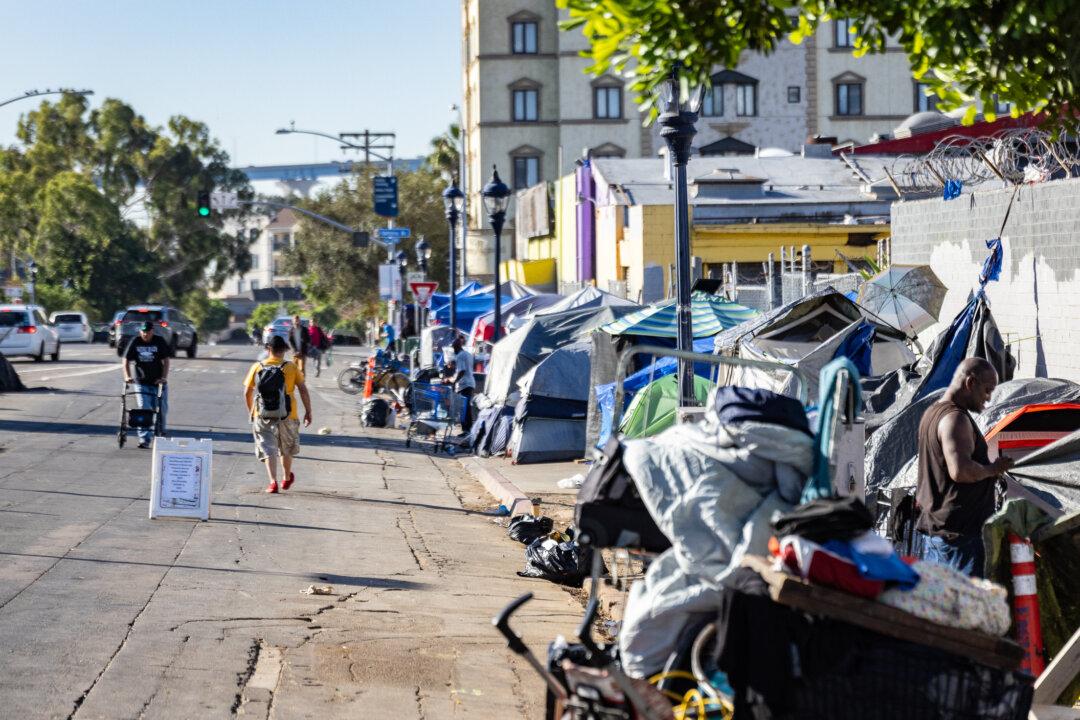A U.S. Marine veteran and businesswoman who is running for Congress says she has a solution to fix San Diego’s homeless problem: creating what she calls “basecamps” where unhoused individuals would live in a supervised community and receive services.
Kate Monroe is a Republican who is a candidate for the 2024 U.S. House of Representatives race to represent California’s 49th District—which encompasses the San Diego coastal communities of Oceanside, Vista, Carlsbad, Encinitas, and parts of Orange County from the coast of Laguna to the county border.





